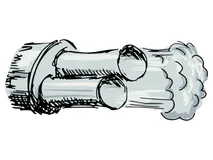Being a landlord can be a lucrative investment with many opportunities , but obviously it is not without its expenses. From repairs and maintenance to insurance and mortgage interest, general expenses, there are many costs associated with owning and renting out a property. The good news is that some of these expenses can be claimed against your rental income, reducing your tax liability and maximizing your profits. In this article, we’ll take a closer look at allowable expenses for landlords and what you need to know.
What are Allowable Expenses for Landlords?
Repairs and Maintenance
Mortgage Interest
Insurance Premiums
Council Tax
Advertising and Letting Agent Fees
Legal and Accountancy Fees
Capital Allowances
Furnishings and Appliances
Subletting Expenses
Allowable expenses are costs that you can claim against your rental income when calculating your taxable profits.
These expenses must be “wholly and exclusively” incurred for the purpose of renting out your property.
Repairs and Maintenance
Repairs and maintenance costs are allowable expenses as long as they are not improvements to the property.
Examples of allowable repairs and maintenance include fixing a leaky roof, repairing a broken boiler, and repainting walls.
Mortgage interest is one of the biggest expenses for many landlords, but it is also an allowable expense.
Landlords can claim relief for the interest paid on a mortgage used to buy or improve the rental property.
Insurance Premiums
Landlords need to have insurance to protect their rental property, and the cost of these premiums is an allowable expense.
Examples of insurances that can be claimed include building and contents insurance, public liability insurance, and landlord insurance.
Council tax is payable on all residential properties, but landlords can claim relief on the portion that relates to their tenants’ occupation of the property.
Landlords cannot claim relief for council tax when the property is vacant.
Advertising and Letting Agent Fees
If you use a letting agent to find tenants, their fees can be claimed as an allowable expense.
Advertising costs, such as newspaper ads and online listings, are also allowable.
Legal and Accountancy Fees
Legal and accountancy fees incurred in the course of renting out a property are allowable expenses.
Examples include fees for preparing a lease agreement, advice on tax planning, and bookkeeping services.
Capital Allowances
Landlords can claim capital allowances on certain assets, such as furnishings and appliances, that are used in the rental property.
This can include things like washing machines, carpets, and furniture.
Furnishings and Appliances
The cost of furnishing a rental property, including appliances like fridges and ovens, is an allowable expense.
The full cost of the item cannot be claimed in the year of purchase, but it can be claimed over a period of years through capital allowances.
Subletting Expenses
If you sublet part of your rental property, you can claim expenses related to that part of the property, such as utility bills and repairs.
Usually a 10% deduction from the income is also available for each landlord or to the rental business.
You cannot claim expenses related to your own living area, only the area that is being sublet.







